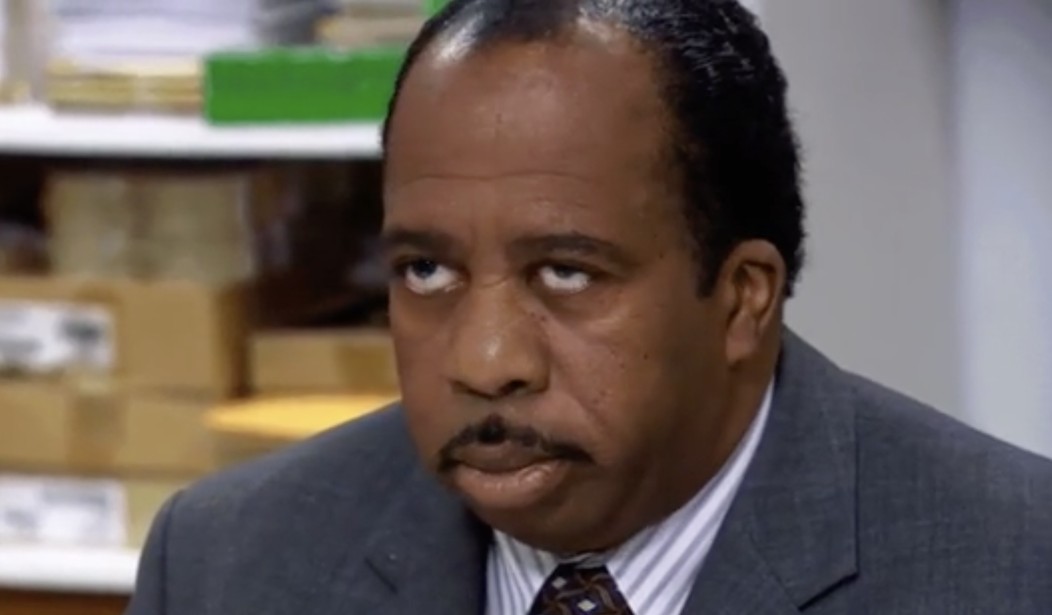If you’re white and like to share memes on social media, you’re probably guilty of “digital blackface,” according to CNN.
There are countless memes out there shared by people from all walks of life. But only certain people get to share the meme of Kayode Ewumi grinning and pointing to his temple, or the “Ain’t nobody got time for that!” lady, or GIFs of Stanley from The Office rolling his eyes.
Me, when some left-winger says posting memes with black people in them is racist. pic.twitter.com/imDEtMUWMW
— Matt Margolis (@mattmargolis) March 27, 2023
“If you’re Black and you’ve shared such images online, you get a pass,” writes CNN’s John Blake. “But if you’re White, you may have inadvertently perpetuated one of the most insidious forms of contemporary racism.”
According to Blake, “you may be wearing ‘digital blackface.'”
It is easy to discount this absurd accusation as satire, but I assure you it’s not. “Digital blackface is a practice where White people co-opt online expressions of Black imagery, slang, catchphrases or culture to convey comic relief or express emotions,” write Blake, no doubt genuinely believing what he says. “These expressions, what one commentator calls racialized reactions, are mainstays in Twitter feeds, TikTok videos and Instagram reels, and are among the most popular Internet memes.”
Digital blackface involves White people play-acting at being Black, says Lauren Michele Jackson, an author and cultural critic, in an essay for Teen Vogue. Jackson says the Internet thrives on White people laughing at exaggerated displays of Blackness, reflecting a tendency among some to see “Black people as walking hyperbole.”
If you’re still not sure how to define digital blackface, Jackson offers a guide. She says it “includes displays of emotion stereotyped as excessive: so happy, so sassy, so ghetto, so loud… our dial is on 10 all the time — rarely are black characters afforded subtle traits or feelings.”
Many White people choose images of Black people when it comes to expressing exaggerated emotions on social media – a burden that Black people didn’t ask for, she says.
Blake continues by comparing white people sharing memes featuring black people to the racist blackface minstrel shows prevalent from the early 19th to the early 20th century. “Put simply,” he says, “digital blackface is 21st-century minstrelsy.”
While you’re trying to wrap your head around the absurdity of this, I can’t help but wonder how sharing memes is racist and “minstrelsy,” but Disney remaking classic films and race-swapping traditionally white characters is not.
Related: Another Day, Another CNN Discovery of Something Racist
The best part of this story is how Blake got ratioed on Twitter, complete with posts that Blake dubs “digital blackface.”
— Robby Starbuck (@robbystarbuck) March 26, 2023
me, realizing there is always a new level of absurdist performative grievance grubbing to which to descend… pic.twitter.com/e35TDMZghw
— el gato malo (@boriquagato) March 26, 2023
Just here for the ratio. pic.twitter.com/0hOQ4zcGnC
— Dan Goldwasser (@dgoldwas) March 26, 2023
I could go on, making fun of this absurd suggestion that only black people can share memes featuring black people, but “Ain’t nobody got time for that.”










Join the conversation as a VIP Member